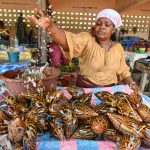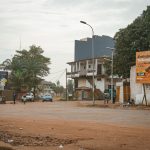[ad_1]
The first signal which indicates that 2023 general elections will go for the rich or wealthy class is the cost of nomination forms of the two dominant parties. The ruling APC and opposition PDP pegged the price of their forms at N100million and N40million respectively. Notwithstanding, the high cost of forms has neither deterred nor discouraged our politicians. Thousands of aspirants besieged the parties’ offices to obtain their forms. By the time the sales of forms were closed, the two political parties had raked in billions of naira. Though, the increase in the price of forms came at a wrong time when the country’s economy was bad and had attracted mixed reactions from Nigerians, no any political parties saw the wisdom to reduce or make it affordable to many Nigerians. During the primaries, aspirants have to meet the delegates and solicit for their votes. In the past, it took aspirants little time and token to convince or woo delegates.
There is no doubt 2023 general election will be quite different from the previous ones. The delegates who sometimes vote aspirants with little money, conviction or based on recognition have suddenly become kings. The ongoing parties’ primaries have shown only the money bags politicians can win. Delegates who are supposed to select competent and saleable candidates for their political parties have abandoned such role. Instead, delegates now look for politicians who will give them more cash in exchange of their votes. The struggle for who will clinch or get his/her parties ticket in the just concluded National Assembly and gubernatorial primaries witnessed the splashing of naira and dollars to the delegates in many states. Delegate in hottest contests reportedly got between N500,000, N2million and in some cases even higher. No wonder, former Senator Shehu Sani, who aspired to get his party’s ticket, could only muster two delegates at the end of the primaries. But the former senator must have shot himself right from the beginning. Prior to the primaries, Sani boldly told the delegates he did not have money to splash on them.
The monetization of Nigerian democracy will not augur well to the growth and development of the country. For someone to win an election in Nigeria, he needs to have financial muscle to purchase the exorbitant form, bribes delegates with naira and dollars and above all, induce voters during elections. With politicians spending huge resources before they can win an election, Nigerians should expect little democracy dividends from them. While our electoral laws have stated the required minimum campaign funds, it is silent on the political parties’ primaries finance where the highest bidders carry the day. One of the implications of monetization of delegates system is the recruitment of incompetent candidates into the various leadership positions. The delegates always go for higher bidders whether the candidate is qualified or not. The attempt to reform our electoral laws by President Muhammadu Buhari which would have allowed political parties to adopt direct primaries met stiff opposition from those who felt the system would not favour them.
The Nigerian conversation should centre on qualitative leadership recruitment and how the country can develop economically, socially and politically and not monetization of our democracy. The delegates should know or bear it in mind that by collecting huge funds and electing incompetent candidates, they are indirectly mortgaging the future of our children.
Ibrahim Mustapha, Pambegua, Kaduna State
[ad_2]
Source link











